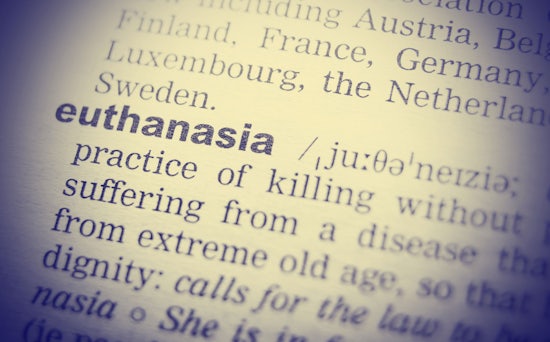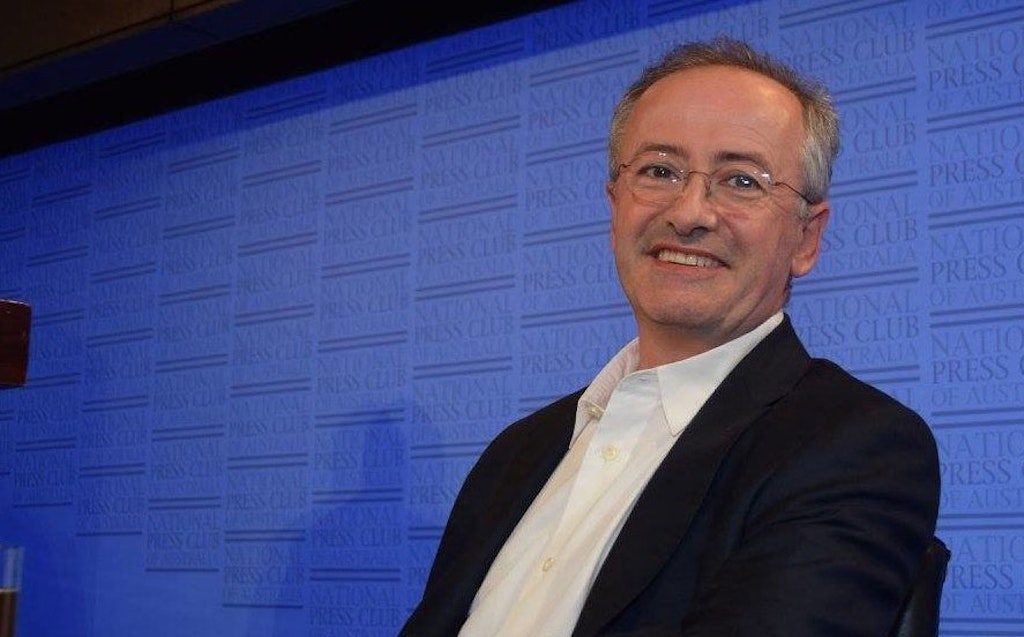The great debate on voluntary euthanasia
A national campaign appealing to politicians to support voluntary euthanasia laws has been launched in South Australia by television and radio personality Andrew Denton.

A national campaign appealing to politicians to support voluntary euthanasia laws has been launched in South Australia by television and radio personality Andrew Denton.
The campaign, jointly backed by the Australian Nursing and Midwifery Federation (ANMF) and Go Gentle Australia is aimed at encouraging politicians to exercise their conscience vote in favour of voluntary euthanasia.
While it is currently targeting MPs in South Australia where politicians are considering whether to legalise the act, organisers claim ‘the outcome of this vote won’t just affect one State. It will affect us all.’
South Australia is the only state with legislation currently before Parliament. In June a cross-party state committee report recommended the Victorian State Government legalise assisted dying for people suffering from serious and incurable conditions.
The report recommends “The Government should introduce legislation to allow adults with decision-making capacity, suffering from a serious and incurable condition who are at the end of life to be provided assistance to die in certain circumstances.”
The report makes 49 recommendations and includes protection for doctors prescribing lethal drugs.
Meanwhile, MP Peter Wellington is also calling for a Queensland inquiry into end of life choices.
“It is time Queensland Parliament consulted with Queenslanders on the topic of end of life choices for adults including the case of people experiencing unbearable and hopeless suffering as a criteria for requesting help to die,” a recent post on his Facebook page states.
Tracey Watters, Chief Executive Officer, Palliative Care South Australia points out euthanasia is not palliative care, and palliative care is not euthanasia. “We acknowledge the organisation has a unique membership and there are supporters both for and against voluntary euthanasia,” she says. “As an organisation we cannot be pro or anti voluntary euthanasia.”
In a position statement, Palliative Care Australia believes the practice of palliative care does not include euthanasia or physician assisted suicide nor does palliative care intend to hasten or postpone death.
“The main goals of palliative care and end-of-life care are symptom relief, the prevention of suffering and improvement of quality of life. Palliative care and end-of-life care are person-centred and focused on individual and family needs,” the statement says. “Compassion, dignity, respect and participation in decision-making are important to all and integral to delivery of high quality palliative care and end-of-life care. A request for euthanasia or physician assisted suicide requires a respectful and compassionate response.”

Ms Watters personally believes there is a lot of misinformation and
unproved evidence pushing the debate, and more education is needed about
death. “As a society we need to talk about death and dying,” she says.
She acknowledges end of life can be unpalatable and not pretty, but
feels access to specialist palliative care can address some of the
suffering.
She refers to statements made by a palliative care nurse with 35 years of experience, who thinks those who express a wish to die are seeking relief from what they perceive to be intolerable situations. Often these situations can be alleviated once they are recognised. “Those caring for the dying are the first to admit that there are still too many who receive poor care and inadequate relief,” says the nurse. “A change in the law will not correct these deficiencies in care. Better would be a realisation of what can be done to relieve distress.”
Ms Watters also raises concerns over a person using voluntary euthanasia for other reasons, such as not wanting to be a burden. “How do we work between normalising the space of suicide?” she queries.
Kate Swaffer, who was diagnosed with younger onset dementia, says voluntary euthanasia is not something she would choose for herself, but she believes in everyone’s right to choose, and believes it should be legalised.
“Frankly, if we allowed our pets to die without dignity as so many humans currently die, we would be on the front page of every paper in the country for cruelty to animals. Of course, we euthanise our beloved pets, because we want to stop their suffering,” she says.
However, she feels even if the legislation went through it probably wouldn’t go far enough for people in the late stages of dementia who would probably be denied it due to not having the capacity to do it themselves. “I also believe the other group it misses are those living with severe mental illness, where life with or without treatment is also unbearable. In a way this is not unlike having an unbearable and incurable cancer,” she says.
Ms Swaffer also raises concerns over the grief for those family members who do not believe in voluntary euthanasia, and highlights their grief may be exacerbated by their beliefs against it. “In my research on voluntary euthanasia, I have seen little if anything about this in the literature,” she says.
Euthanasia was briefly legal in Australia in the 1990s. The Rights of the Terminally Ill Act 1995 (NT) passed by the Legislative Assembly of the Northern Territory of Australia in 1995, legalised euthanasia, but it was nullified in 1997 by the Federal Parliament.
According to the Australian Bureau of Statistics, the highest age-specific suicide death rate in 2013 is in males aged 85 and over at 38.3 per 100,000 males.
Visit bethebill.com for more information about the campaign










